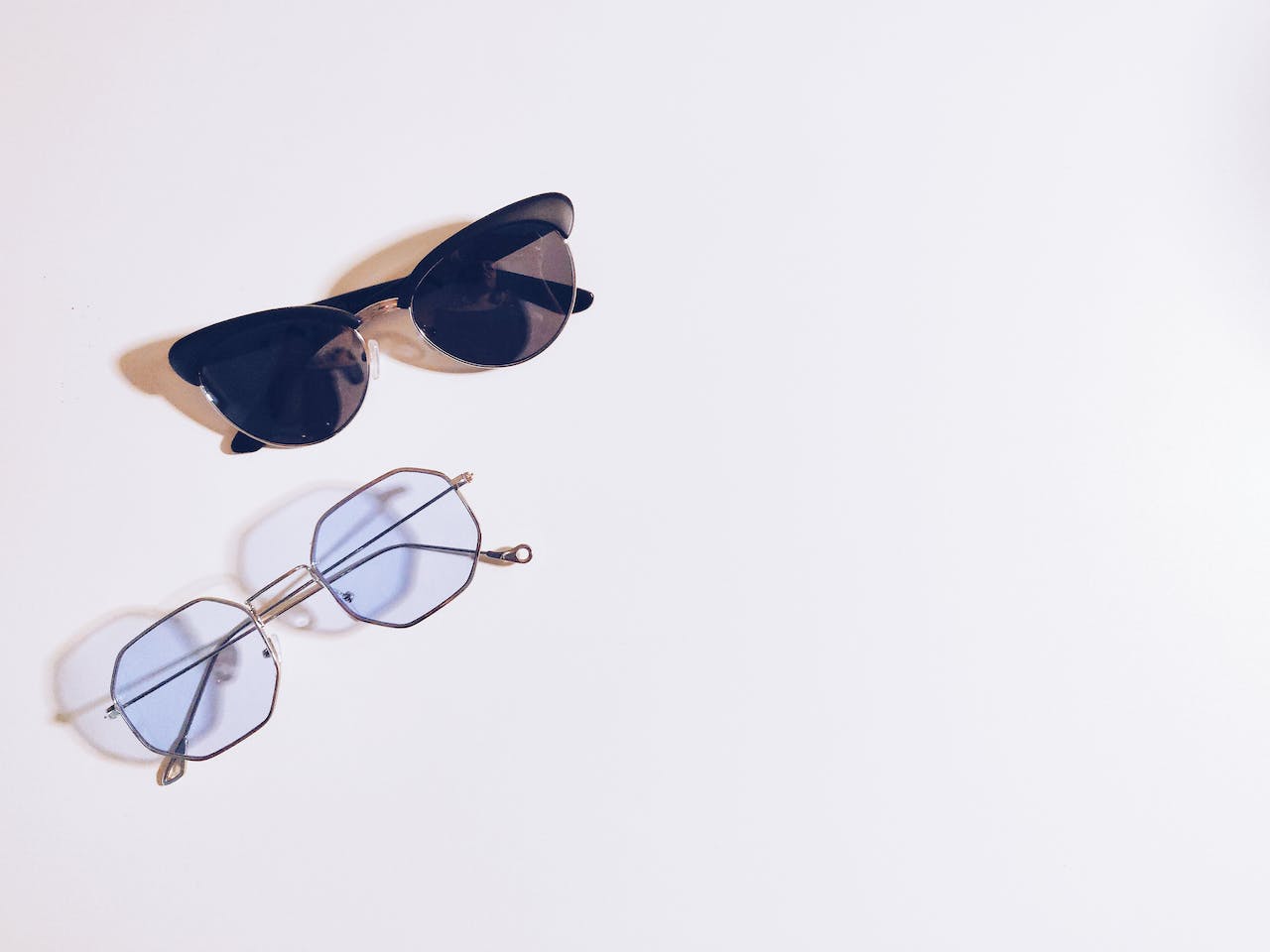In the quest for the perfect blend of style and functionality, sunglasses stand out as a quintessential accessory for people around the globe. Beyond their ability to make a fashion statement, sunglasses protect our eyes from the harsh realities of sunlight and environmental hazards.
However, like any accessory designed to enhance our well-being and style, sunglasses come with their own set of advantages and disadvantages. From shielding our eyes against the sun’s damaging rays to becoming an indispensable fashion accessory, the significance of sunglasses cannot be overstated. Yet, it’s essential to navigate the fine line between their benefits and the potential drawbacks they may carry.
This blog post aims to delve into the multifaceted world of sunglasses, exploring how they benefit us, the considerations to keep in mind, and the less-discussed disadvantages accompanying their use. Join us as we uncover the layers behind the tinted lenses and frame the complete picture of what sunglasses offer, ensuring that your next pair is not just a fashion statement but a well-informed choice for your eye health and comfort. Check out https://goodr.com/ for more lots of options related to sunglasses.
How Do Polarized Lenses Work?
Polarized lenses are a marvel of optical technology, designed to significantly reduce glare while enhancing visual clarity and comfort in brightly lit environments. But how exactly do they achieve this?
The secret lies in their special filter that blocks horizontally oriented light waves, which are predominantly responsible for the harsh glare we experience when sunlight bounces off flat surfaces like water, roads, or snow. Unlike regular lenses that merely reduce light intensity, polarized lenses contain a chemical film with molecules arranged in parallel lines.
Consequently, polarized lenses are particularly beneficial for driving, fishing, skiing, and boating, where glare reduction is crucial for safety and comfort. By filtering out the blinding glare without compromising on light quality, polarized sunglasses provide a serene visual experience, making them an indispensable tool for anyone looking to protect their eyes while enhancing their perception of the world around them.
Advantages of Sunglasses
Here are a few benefits of polarized lenses in detail:
- Protection from UV Rays: Sunglasses block out harmful UVA and UVB radiation from the sun, which can lead to cataracts, macular degeneration, and other eye health issues. Long-term exposure to these rays without protection can cause significant damage to the eyes.
- Reduced Eye Strain and Glare: Sunglasses help prevent squinting and eye strain by reducing glare from reflective surfaces. This is especially beneficial when driving, as it improves visibility and reduces the risk of headaches and fatigue caused by bright sunlight.
- Eye Health Preservation: Regular use of sunglasses can protect the eyes from the elements, such as wind, dust, and debris, reducing the risk of corneal abrasions or dry eye syndrome. They also protect the delicate skin around the eyes, which is susceptible to skin cancer and premature aging.
- Enhanced Visual Comfort and Safety: Sunglasses improve visual comfort by moderating light levels, enhancing contrast, and improving optical clarity, making outdoor activities more enjoyable and safer.
- Useful in Bright Conditions: As we have discussed, those sunglasses can fight glare; they can be used equally easily in bright situations to make the vision even more evident. This allows us to be comfortable in diverse environmental conditions.
- Fashion and Style: With endless styles, shapes, and colors, sunglasses offer a unique opportunity to express personal style while providing practical benefits.
- Prescription Options: For those requiring vision correction, prescription sunglasses provide a convenient solution, combining UV protection and optical clarity.
- Protection in Varied Environments: Whether it’s a sunny day at the beach, a snowy slope, or a road trip, sunglasses protect different environments and weather conditions, safeguarding eyes against glare and UV damage.
Disadvantages of Sunglasses
Although sunglasses are a masterpiece of technology for the blockage of glare, making it easier to see on bright and sunny days. However, there are some issues and drawbacks from which you have to be aware. They are as follows:
- Cost: High-quality sunglasses, especially those with polarized or prescription lenses, can be expensive. The cost can be a significant consideration for some people, making accessing the best eye protection challenging.
- Inconvenience and Loss: Sunglasses can be easily forgotten, lost, or damaged, especially when traveling or engaging in outdoor activities. This inconvenience can lead to additional expenses or moments without necessary eye protection.
- Incorrect Use: Not all sunglasses offer adequate UV protection. Wearing sunglasses that do not block 100% of UVA and UVB rays can harm your eyes more than not wearing sunglasses at all, as the dark lenses cause the pupils to dilate, allowing more harmful radiation to enter the eye.
- Dependency: Regular use of dark sunglasses might lead to a dependency, making your eyes more sensitive to natural light when you’re not wearing them. This adjustment can be uncomfortable and inconvenient, especially when wearing sunglasses is impractical.
- Possible Visual Distortion: Some sunglasses, particularly those with very cheap or poor-quality lenses, can cause visual distortion or affect color perception, which can be disorienting or uncomfortable for the wearer.
- Fashion over Function: The temptation to choose sunglasses based on style rather than UV protection and lens quality can lead to poor eye health choices. Balancing aesthetic preferences with the functional need for eye protection is essential.
- Limited Indoor Use: Sunglasses are not suited for indoor use, which can be a drawback when transitioning from bright outdoor environments to indoor settings is frequent, requiring the wearer to switch between sunglasses and regular glasses.
Common Myths About Sunglasses
Sunglasses are more than just fashion accessories. Their features offer safety precautions that are viable to everyone who wants to save their eyesight. Here are some common myths about sunglasses and the truth behind them.
- Sunglasses are only helpful on sunny days. UV rays can penetrate clouds and haze. Also, everyday reflective surfaces such as snow, water, road surfaces, and car windshields reflect a lot of light, and prolonged exposure can seriously damage your eyes. Sun exposure increases the risk of cataracts, eye growth, and cancer regardless of the season. The sun reflecting off ice and snow can also lead to photokeratitis, a painful eye condition sometimes called snow blindness or sunburn of the eye.
- The darker the lenses, the better. Lens’ darkness does not indicate protection. Make sure the lens label says 100% UV blocking. The color may or may not cause the pupil to constrict enough to keep light comfortable, causing it to squint to limit the amount of incoming light. The real deal lies in the amount of blocking quality that may be present in lighter lenses. Studies show that darker shades that do not offer higher protection against UV may even cause more damage as light allows higher-energy waves into the eye since pupils dilate in the low-light conditions produced by darker lenses.
- Adults need sunglasses more than children. People of all ages, especially young people, benefit from wearing UV-blocking sunglasses. Children are as vulnerable to the sun’s harmful rays as adults. Children’s lenses allow 70% more UV light to enter the retina than adult lenses. Parents should know that wearing sunglasses is as important as applying sunscreen when going out.
Considerations When Choosing Sunglasses
When selecting the perfect pair of sunglasses, weigh several vital considerations to ensure you’re making a style statement and providing optimal protection and comfort for your eyes. Here are critical factors to keep in mind:
- UV Protection: The primary purpose of sunglasses is to protect your eyes from harmful ultraviolet (UV) rays. Look for sunglasses that offer 100% UVA and UVB protection. This feature is crucial for preventing long-term eye damage.
- Lens Quality: High-quality lenses provide clearer vision and better protection. Consider polarized lenses to reduce glare, especially if you spend much time driving or outdoors. Also, assess the lens material for durability and impact resistance.
- Fit and Comfort: Sunglasses should fit nicely on your face without pinching the bridge of your nose or squeezing your head. Proper fit not only ensures comfort but also maximizes protection by preventing UV rays from entering around the edges of the glasses.
- Frame Material: The frame material influences sunglasses’ durability, weight, and comfort. Options range from lightweight metals and flexible polymers to more durable but potentially heavier materials.
- Style and Functionality: While aesthetics are important, functionality should not be compromised. Consider your lifestyle and activities. Sports sunglasses offer specific features like rubber grips and wraparound designs for active users, whereas fashion-focused frames might prioritize trends over performance.
- Prescription Compatibility: If you wear prescription glasses, consider prescription sunglasses or clip-ons. This ensures you do not sacrifice visual clarity for sun protection.
- Price vs. Quality: While more expensive sunglasses often offer better quality and protection, affordable options still provide 100% UV protection and decent lens quality. It’s essential to balance the price and the features you need.
Choosing the right sunglasses is a balance of protecting your eye health, ensuring comfort and fit, and expressing personal style. By carefully considering these factors, you can select a pair of sunglasses that looks great and preserves your vision and eye health in the long term.
Conclusion
You should consult an eye specialist if you have a problem with your present sunglasses rather than going to the market and buying a new pair of sunglasses.


